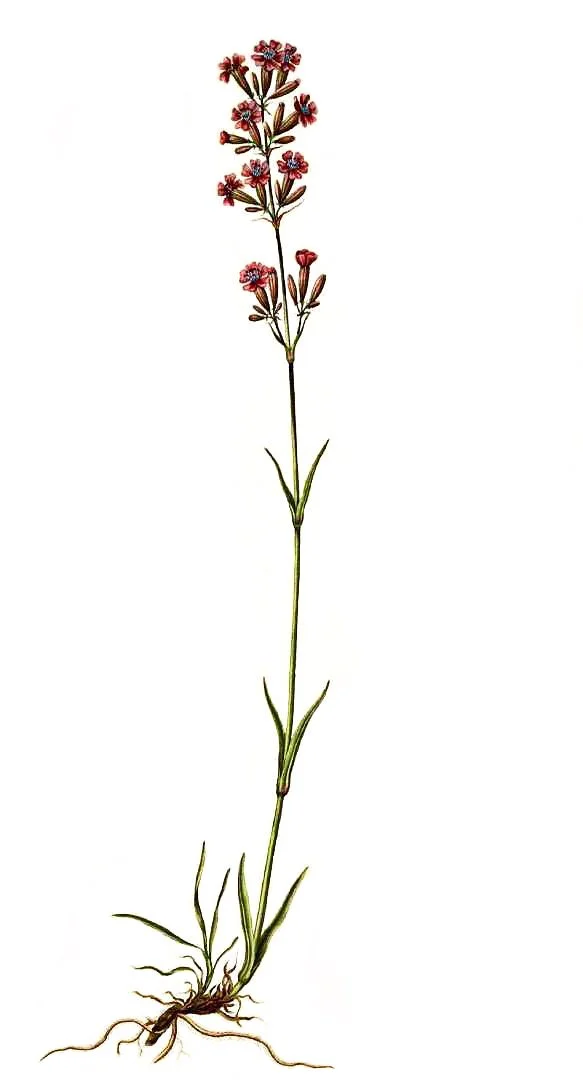Lychnis viscaria 'atropurpurea'
Lychnis viscaria 'atropurpurea'
LYCHNIS VISCARIA ‘ATROPURPUREA’
The genera of Lychnis and Silene are some of the most confusing in horticulture. Lychnis viscaria is also listed in some botanical literature as Silene viscaria and even Viscaria vulgaris. One of its more common of common names is, tragically, Clammy Campion. Also known as Sticky Catchfly.
What is significant about this species, aside from its very confusing nomenclature, is that it possesses high levels of brassinosteroids. These plant hormones contribute to health and disease resistance in several species commonly found in small gardens. An extract of Lychnis viscaria is recently empoyed as a biostimulant in large scale food production. The historic use of this little weed as a companion plant in vegetable gardens has been poo-pooed in modern times, but science has qualified its value in the unlikely context of industrial agriculture.
Though the preparation of Lychnis viscaria for use in the home garden requires further research, utilizing this pretty flowering species as a companion plant is prudent. Aqueous extracts of plants and their mature seeds are, at the very least, harmless and worth experimenting with. Allow plants to macerate in buckets of spring water for several days, or even weeks, before applying to the soil or as a foliar spray.
Seeds are easily germinated indoors or out: sow onto moist soil, pressing gently, barely covering with additional light soil or fine vermiculite; mist generously; kept warm (70F) and moist in bright light seeds will germinate within a few weeks. Thin or transplant to individual cells once seedlings are large enough to handle. Transplant seedlings to the garden after the last frost.
Lychnis viscaria ‘atropurpurea’ has a lovely habit, its 12"-18" burgundy stems arising from a tidy little mound of foliage. Cut flowers are suitable for small bouquets. Dark purple-pink flowers are fragrant in the evening and attract pollinating moths. Sticky stems may function as a trap for aphids.
Please read THIS excellent article on brassinosteroids.
Packet contains at least 500 seeds.
